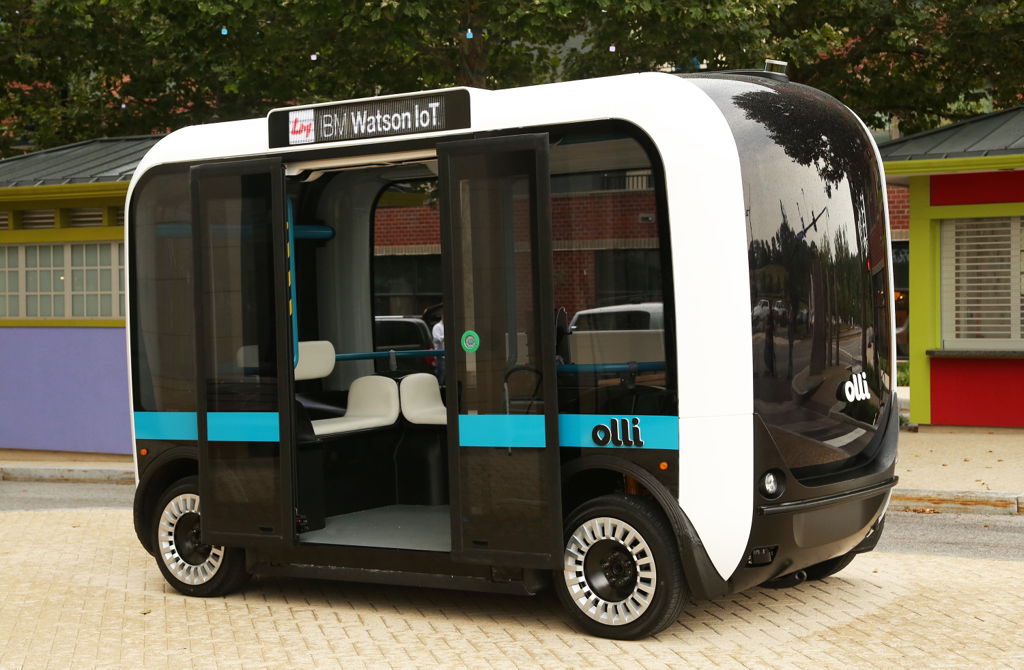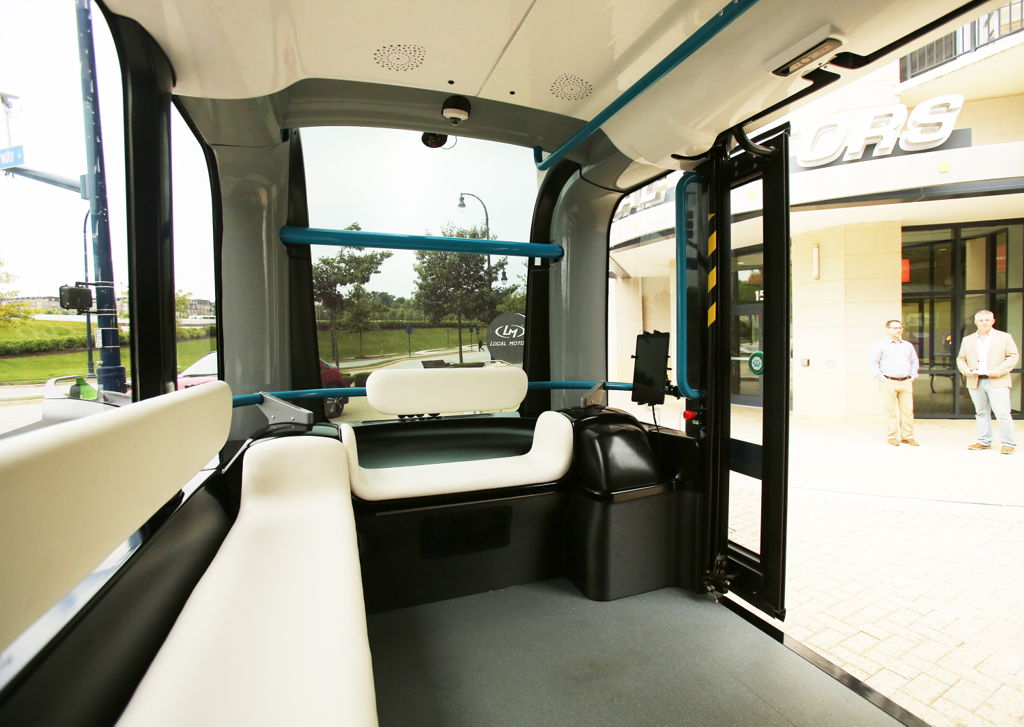Meet the 3D-printed, autonomous car with IBM Watson computing skills
As if being a 3D-printed vehicle wasn’t cool enough, there’s a new car on the road that’s also autonomous and integrates the cognitive computing capabilities of IBM Watson.
Local Motors, a vehicle technology company and the creator of the world’s first 3D-printed car, has now transformed the passenger vehicle with IBM Watson Internet of Things technology and its cars are on the roads of Washington, DC, with n Miami-Dade County and Las Vegas to follow.
The vehicle, dubbed ‘Olli,’ was unveiled during the new Local Motors facility in National Harbor, MD when it transported Local Motors CEO and co-founder John B. Rogers, Jr. along with vehicle designer Edgar Sarmiento from the Local Motors co-creation community into the new facility.

The electric vehicle can carry up to 12 people and is equipped with some advanced vehicle technology, including IBM Watson Internet of Things (IoT) for Automotive, in order to improve the passenger experience and allow natural interaction with the vehicle.
“Olli offers a smart, safe and sustainable transportation solution that is long overdue,” said Rogers. “Olli with Watson acts as our entry into the world of self-driving vehicles, something we’ve been quietly working on with our co-creative community for the past year. We are now ready to accelerate the adoption of this technology and apply it to nearly every vehicle in our current portfolio and those in the very near future. I’m thrilled to see what our open community will do with the latest in advanced vehicle technology.”
Olli is the first vehicle to implement IBM Watson Internet of Things (IoT) in order to analyze and learn from high volumes of transportation data, which is produced by over 30 sensors that are embedded throughout the vehicle.
Using the Local Motors open vehicle development process, the sensors will be added and adjusted continuously as the company determines passenger needs and preferences. In addition, the platform leverages four Watson developer APIs : Speech to Text, Natural Language Classifier, Entity Extraction and Text to Speech, to enable seamless interactions between the vehicle and passengers.
Passengers will be able to have conversations with Olli while traveling, discussing topics like how the vehicle works, where they are going, and why Olli is making certain driving decisions.
Watson is what gives Olli the ability to understand and respond to passengers’ questions as they enter the vehicle, including ones about destinations (“Olli, can you take me downtown?”) or vehicle functions (“how does this feature work?” or even “are we there yet?”).

Passengers can also ask for recommendations on local destinations such as popular restaurants or historical sites based on analysis of personal preferences.
“Cognitive computing provides incredible opportunities to create unparalleled, customized experiences for customers, taking advantage of the massive amounts of streaming data from all devices connected to the Internet of Things, including an automobile’s myriad sensors and systems,” said Harriet Green, General Manager, IBM Watson Internet of Things, Commerce & Education. “IBM is excited to work with Local Motors to infuse IBM Watson IoT cognitive computing capabilities into Olli, exploring the art of what’s possible in a world of self-driving vehicles and providing a unique, personalized experience for every passenger while helping to revolutionize the future of transportation for years to come.”
The company is already exploring the possibility of putting Olli on public roads. Miami-Dade County is exploring a pilot program in which several autonomous vehicles would be used to transport people around Miami.
“Improving the sustainability of local transportation networks as part of a wider goal to create more vibrant, livable, sustainable cities within Miami-Dade County, and improve the quality of life for residents is our top priority,” said Miami-Dade County Mayor Carlos Gimenez. “We must do more to improve transit and mobility in our community and the deployment of autonomous vehicles is a big step in the right direction.”


Comments are closed, but trackbacks and pingbacks are open.